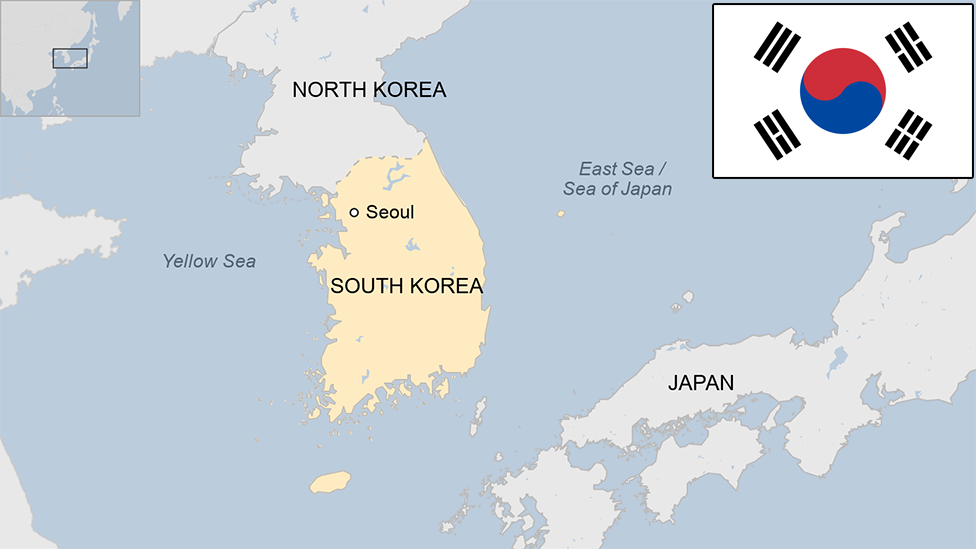South Korea's presidential scandal
- Published
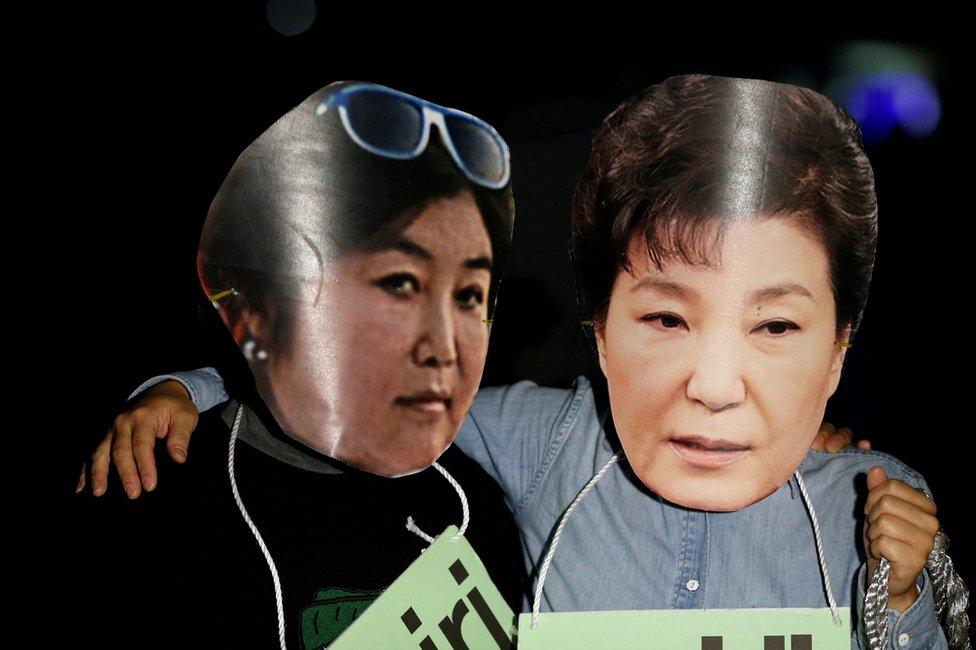
The scandal is centred on the close relationship between Park and Choi
In 2016, South Korea saw the start of a massive corruption scandal involving its political and business elite that brought down its first female president Park Geun-hye.
The scandal, which continues to ripple through South Korean society, generated huge protests.
It has centred on Park's relationship with an old friend, Choi Soon-sil, and has brought to the surface allegations of cult activities, influence-peddling and leaks of classified information.
What is the relationship at the heart of the scandal?
In 1974, Park Geun-hye's mother was killed by a North Korean assassin.
Park, then aged 22, became a stand-in first lady for her widowed father, then-military leader Park Chung-hee.
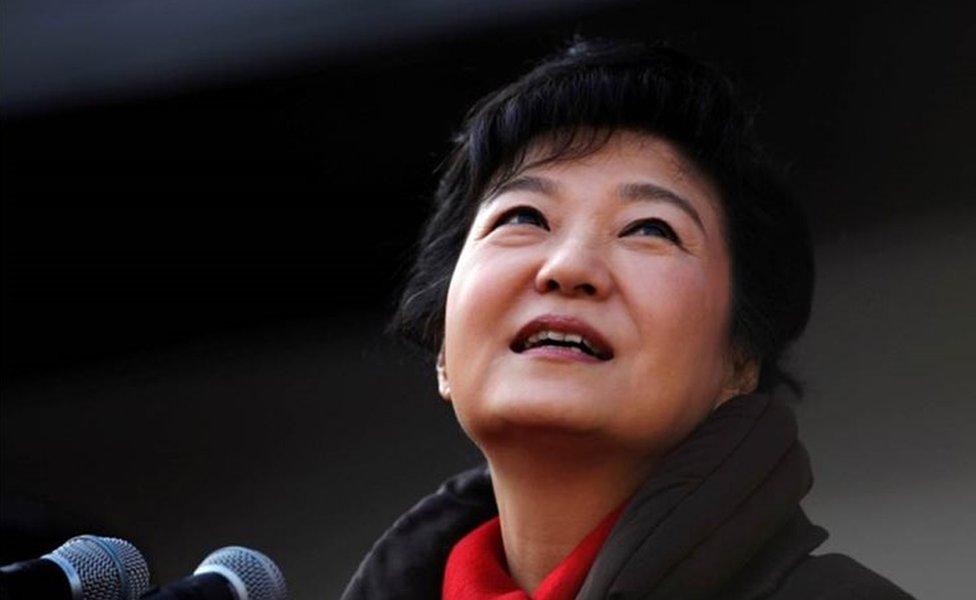
Park lost presidential immunity when she was ousted in March 2017
She got to know Choi Tae-min, a pseudo-Christian cult leader dubbed "the Korean Rasputin".
He became a close family friend and Park's mentor, while also amassing considerable wealth and power.
Park's father was assassinated in 1979. By this point she was firm friends with Mr Choi's daughter, Choi Soon-sil, who later became her adviser when Park became president.
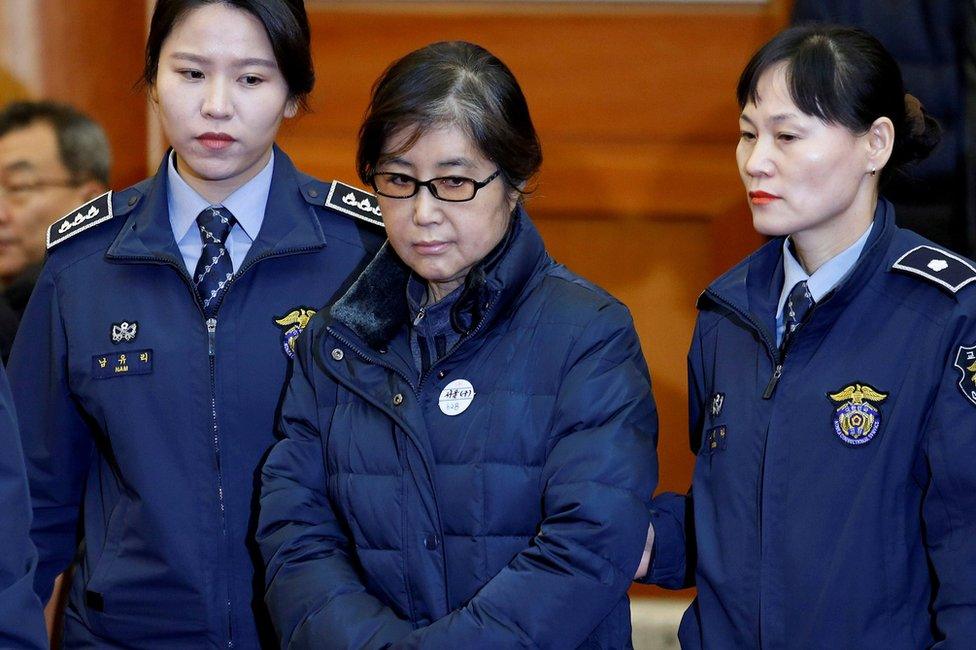
Choi (centre) was a longtime friend and adviser to former South Korean President Park Geun-hye
Their critics believe Choi perpetuated her father's habits, and some media reports suggested that Ms Park held shamanist rituals at the presidential compound under Choi's influence, which Park denied.
Why did the friendship become problematic?
In February 2018, Choi was sentenced to 20 years in jail for corruption, influence-peddling and abuse of power. She was earlier found guilty of using her position to solicit favours for her daughter.
Choi was found to have had used her presidential connections to pressure conglomerates - including electronics giant Samsung - for millions of dollars in donations to two non-profit foundations she controlled.
Park meanwhile has been accused of colluding with Choi, and giving her unauthorised access to state documents.
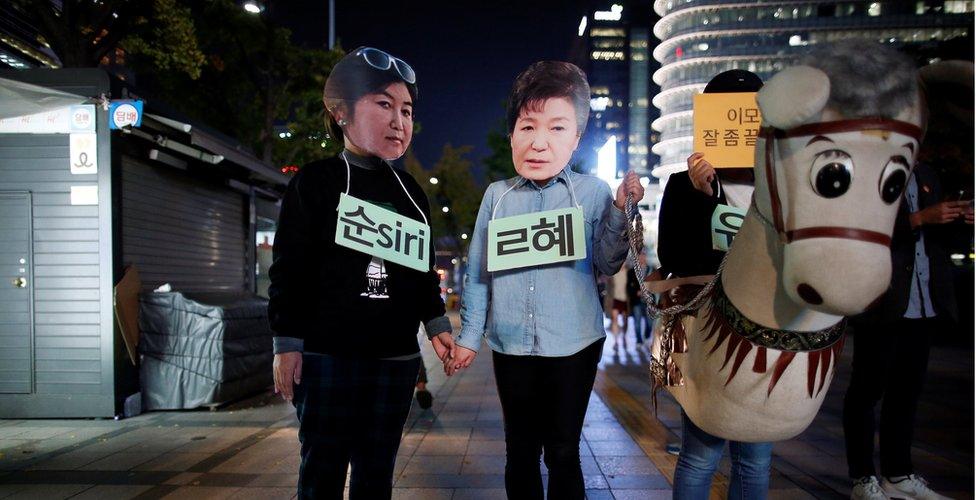
With no immediate family, Park came to rely too much on her friend, critics claim
Ms Park was officially ousted in March 2017, following parliament's decision to impeach her in December. She was the country's first democratically-elected president to be forced from office.
After losing her presidential immunity, she was charged with bribery, abusing state power and leaking state secrets.
Both women denied wrongdoing in their trials.
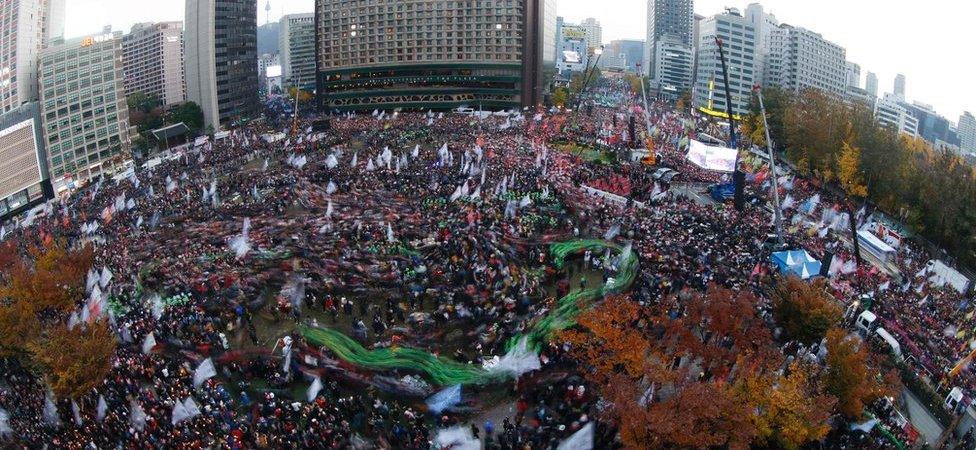
The scandal has prompted numerous mass protests in South Korea
They had earlier apologised, but it was unclear exactly what they were apologising for.
Choi said she had committed an "unpardonable crime", though her lawyer said this was not a legal admission of guilt.
Park admitted she had committed lapses, and apologised to the public for causing "national concern".
So how is Samsung involved?
The firm was one of eight that has admitted making payments to the foundation, but denied it did so in return for any favours.
In August 2017, Samsung's de facto head, Lee Jae-yong, was jailed for five years for bribery and embezzlement. He was later freed in February after an appeals court reduced and suspended his sentence.
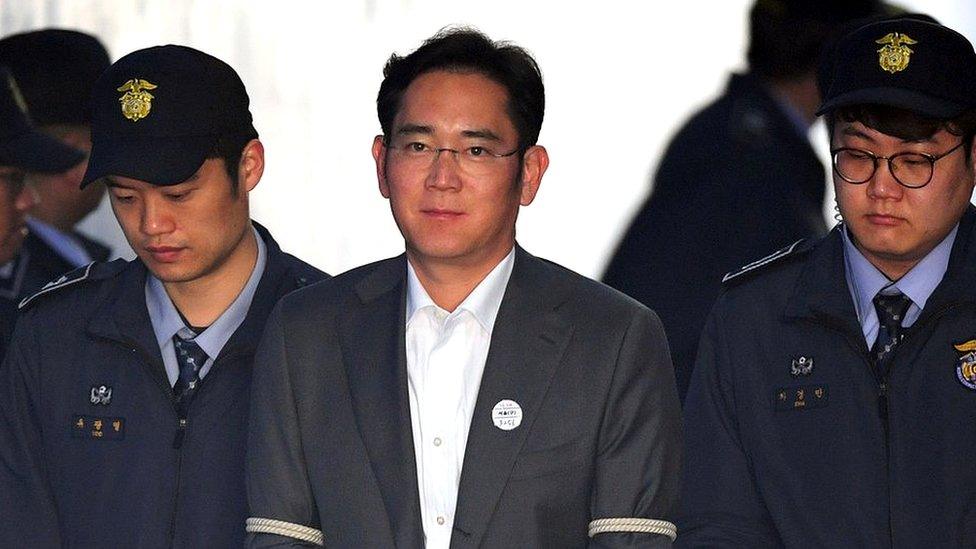
Lee (centre) is the de facto head of South Korea's largest conglomerate
Lee was convicted over payments of 43bn won ($36.4m; £30.3m) made to Choi's foundations, as well as for giving a horse and several million dollars to assist the equestrian career of Choi's daughter.
Prosecutors had accused Lee of approving these payments and gifts in order to win government support for a major restructuring of Samsung.
The 2015 merger of two Samsung units, which paved the way for Lee to become the eventual head of South Korea's largest conglomerate, sparked controversy at that time.
While Lee did not dispute that the payments were made, he maintained during his trial that he was not involved in the decisions and denied that he sought government favours.
Lee was also found guilty of hiding assets overseas, concealing criminal proceeds, and perjury.
Is anyone else involved?
A host of other players have either been implicated, investigated or jailed in connection with the wide-reaching scandal.
These include Samsung executives, various figures in the entertainment world, a former minister, presidential aides, university officials and former associates.
One of them is Choi's daughter, Chung Yoo-ra, a former national equestrian and recipient of Samsung's gift horse.
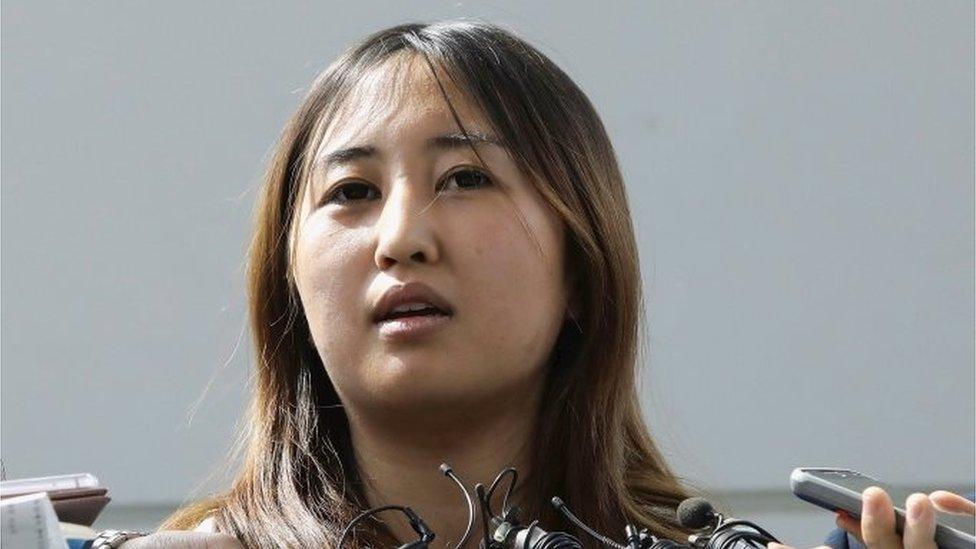
Ms Chung is currently not in detention in Seoul
Choi was convicted for influencing officials at Ms Chung's university to admit her daughter and give her grades for papers or exams she never took.
Prosecutors say Ms Chung was involved in or had knowledge of several of her mother's crimes, but she has denied it.
She was extradited to South Korea from Denmark in early 2017, but has not been detained.
How has the scandal affected South Korean society?
Since it began the whole affair prompted numerous mass protests in South Korea, many of which called for Park to step down.
It fuelled discontent against the government, the political elite and family-run conglomerates which dominate South Korea's economy.
It also propelled the liberal Moon Jae-in, who campaigned on a platform of a clean government, into power after Park.
Though Choi and Lee have been convicted, much of the attention has still been focused on Park.
For many South Koreans, the former president who has been at the centre of one of the country's biggest scandals still has a lot to answer for.
- Published10 March 2017
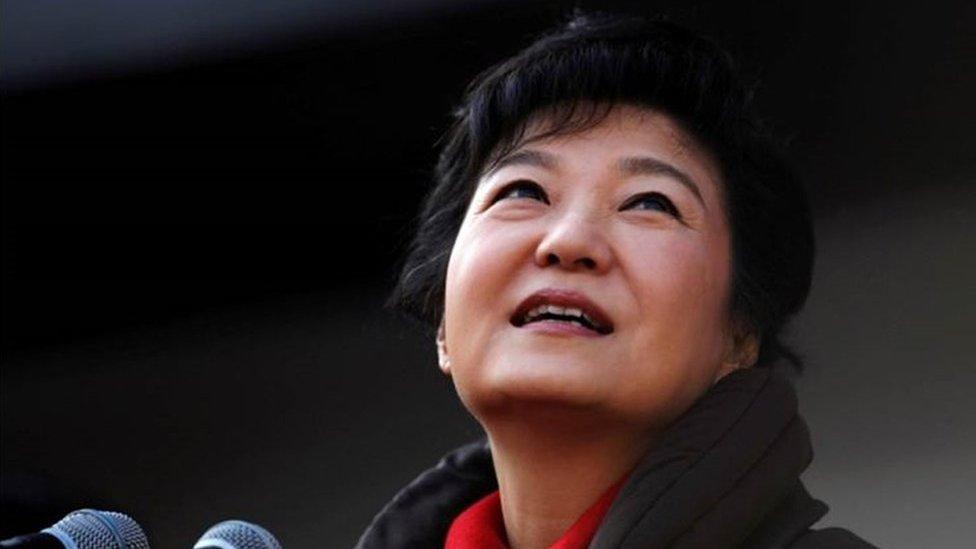
- Published9 March 2017
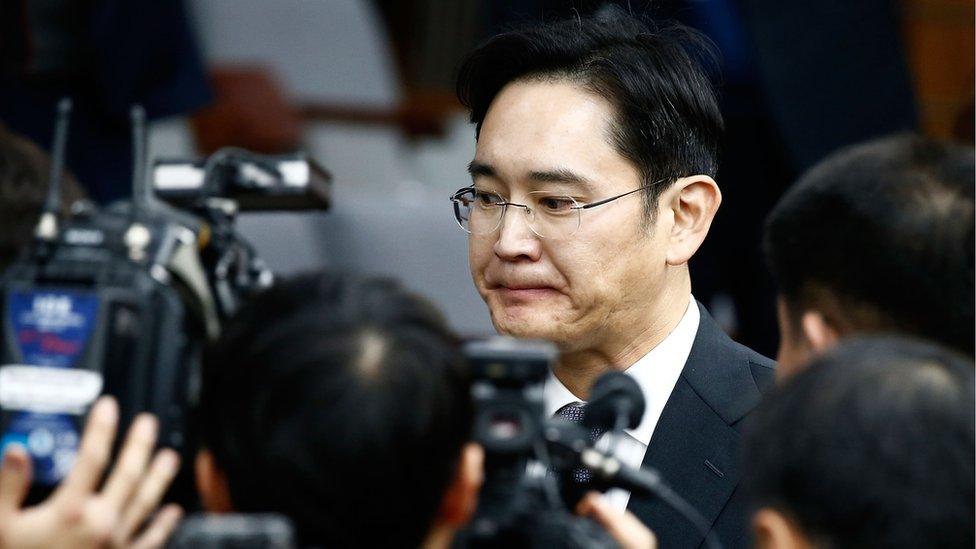
- Published31 October 2016
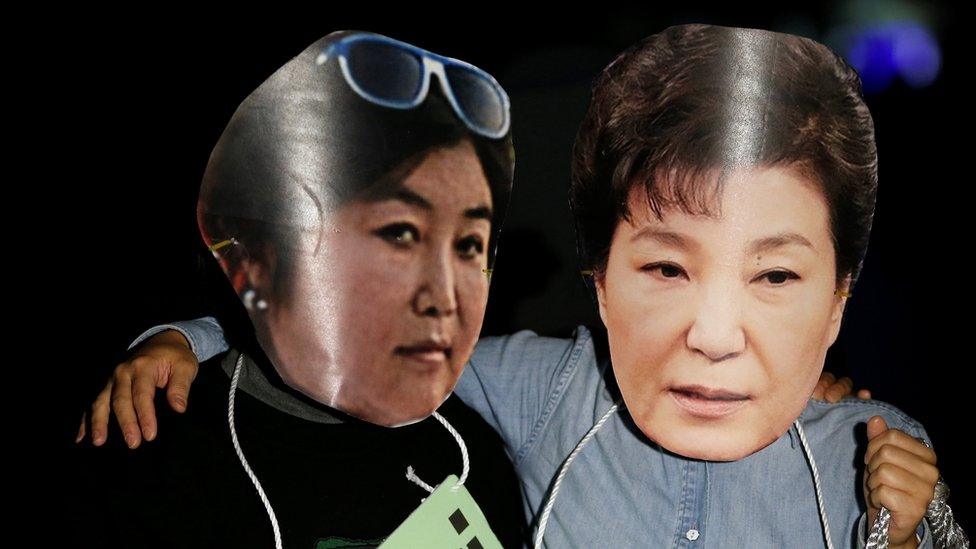
- Published12 November 2016
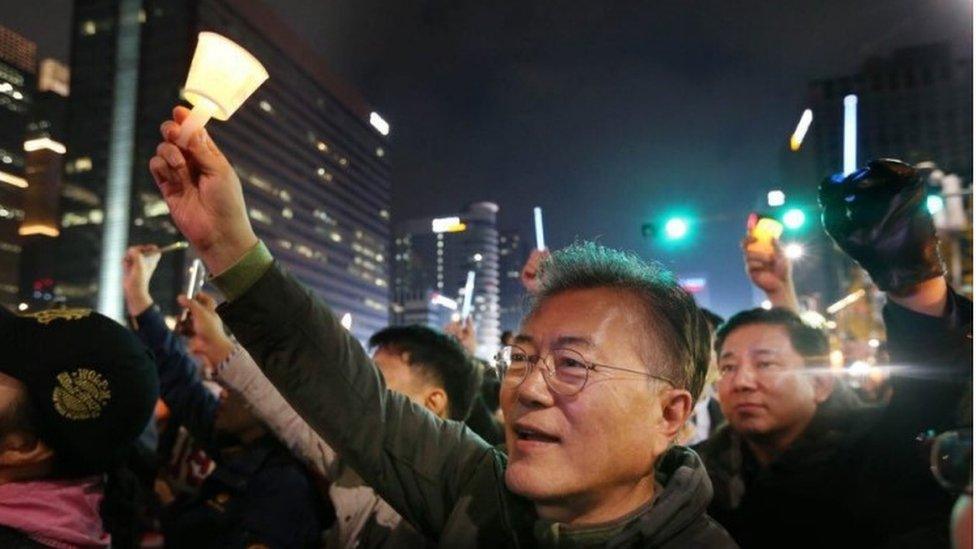
- Published20 November 2016

- Published4 November 2016
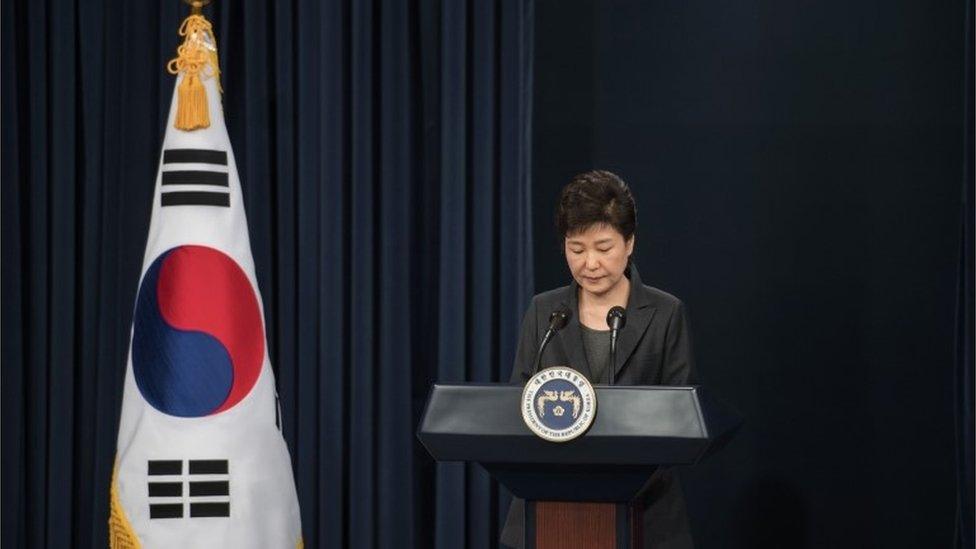
- Published3 January
